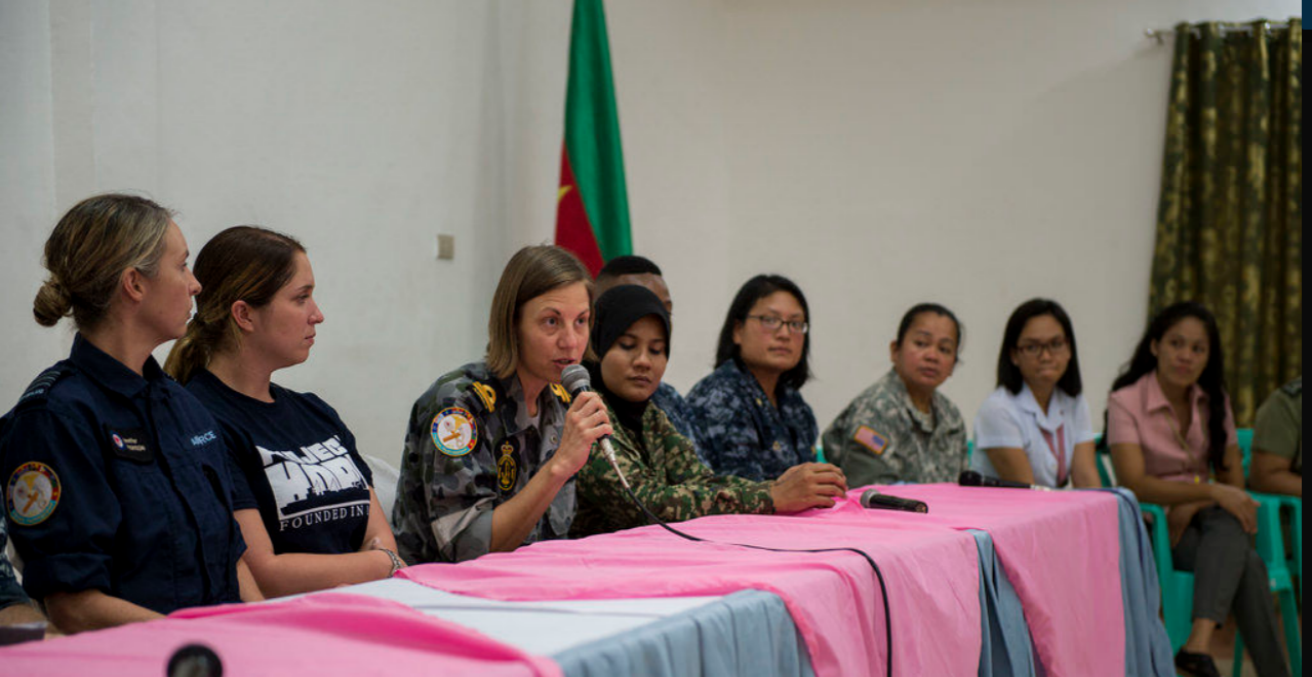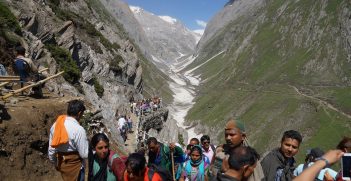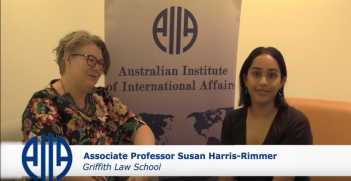Australia’s Action Plan on Women, Peace and Security

Young people have much to contribute to Australian policy ahead of the Second National Action Plan on Women, Peace and Security.
Australia’s first National Action Plan on Women, Peace and Security (WPS) ends this year. The Office for Women is leading Australian Government efforts to design the next National Action Plan and has recently concluded a series of nation-wide community consultations on how Australia should implement the United Nations’ Women, Peace and Security agenda.
As part of this process, Monash University’s Gender, Peace and Security Research Centre designed and facilitated a roundtable consultation attended by 50 young people who have engaged with the WPS agenda as students and/or advocates, attended by an Assistant Secretary from the Office for Women.
The roundtable discussion emphasised the need to engage with young people in Australia and abroad to implement the WPS agenda. The first progress report on the UN’s Youth, Peace and Security agenda reminded the international community that young people experience conflict in unique ways, have different concerns in post-conflict communities and are important peacebuilders in whose hands the sustainability of peace rests. The discussion identified five main priorities for Australia’s second National Action Plan.
Five main priorities
First, Australia must focus on achieving the meaningful participation of women, especially in conflict-affected and conflict-vulnerable communities. This means moving beyond just filling seats and quotas and focusing on creating environments that enable women to engage in transformative politics. This involves understanding and removing the physical, logistical and social barriers that constrain women’s capacity to participate. Increased meaningful participation of women contributes to the prevention of conflict and gender equality which, in turn, reduces the need to protect women from violence and will better facilitate relief and recovery efforts in times of crisis.
Second, the prevention of conflict must be achieved through understanding and addressing the root causes of the conflict. This particularly includes an investment in young people as peacebuilders and community leaders, but also requires a whole-of-community investment in the WPS agenda. To do so, Australia’s second National Action Plan can take the opportunity to better facilitate the broader participation of young people, men and boys in collective approaches towards building sustainable peace.
Third, the current Australian National Action Plan marginalises some identities, particularly indigenous women and those displaced by conflict. In such cases, women’s insecurity and lack of peace can often be traced to their intersectional identities. The intersectional identities not only shape women’s experiences of crisis, but also impact on their capacity to participate in peace and security processes. Therefore, the second National Action Plan must work towards greater inclusion of marginalised voices. They must include and account for voices from different age groups, ethnicities, sexual orientations, nationalities, statehood, socio-economic groups and physical abilities.
Fourth, Peace and Security issues are equally important in both domestic and international sphere. The fluidity of domestic and international issues was highlighted by the participants. Challenges related to climate change, natural disasters, violent extremism and violence against women, among others, must be addressed by both domestic as well as foreign policies. Therefore, as a policy framework, the National Action Plan must effectively align with other relevant domestic and foreign policies and be applicable to Australia’s work at home, as well as abroad.
Finally, the second National Action Plan needs to incorporate both traditional and non-traditional challenges to peace and security. Since the development of Australia’s first National Action Plan, a number of global challenges have emerged and since been considered as part of the WPS framework. This includes issues such as climate change, natural disasters, and forced displacement which are specifically important for the Asia-Pacific region.
This roundtable, which was the only one held specifically for young people, highlighted the value of engaging with youth in the WPS agenda. Young people have unique experiences of crisis and face unique barriers in participating in peace and security activities, as often their opinions and issues are at risk of being trivialised or marginalised in broader discussions. There is, therefore, a major opportunity for Australia to become a global leader in aligning the WPS and YPS agendas and in including young people in the design and implementation of National Action Plans.
Natasha Singh Raghuvanshi is a research support officer at the Monash University Gender, Peace and Security Research Centre. Her research focuses on development issues with particular interest in gender, peace and security. She would like to thank her colleagues Barbara Trojanowska and Associate Professor Katrina Lee-Koo who worked on the National Action Plan on Women, Peace and Security student roundtable.
This article is published under a Creative Commons Licence and may be republished with attribution.





